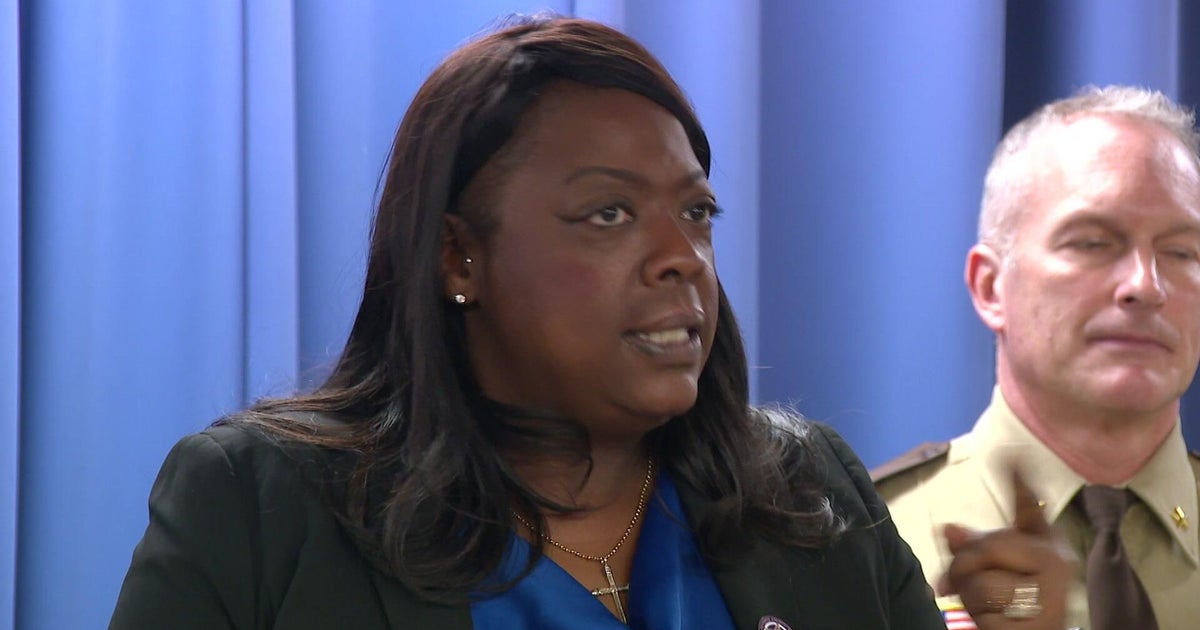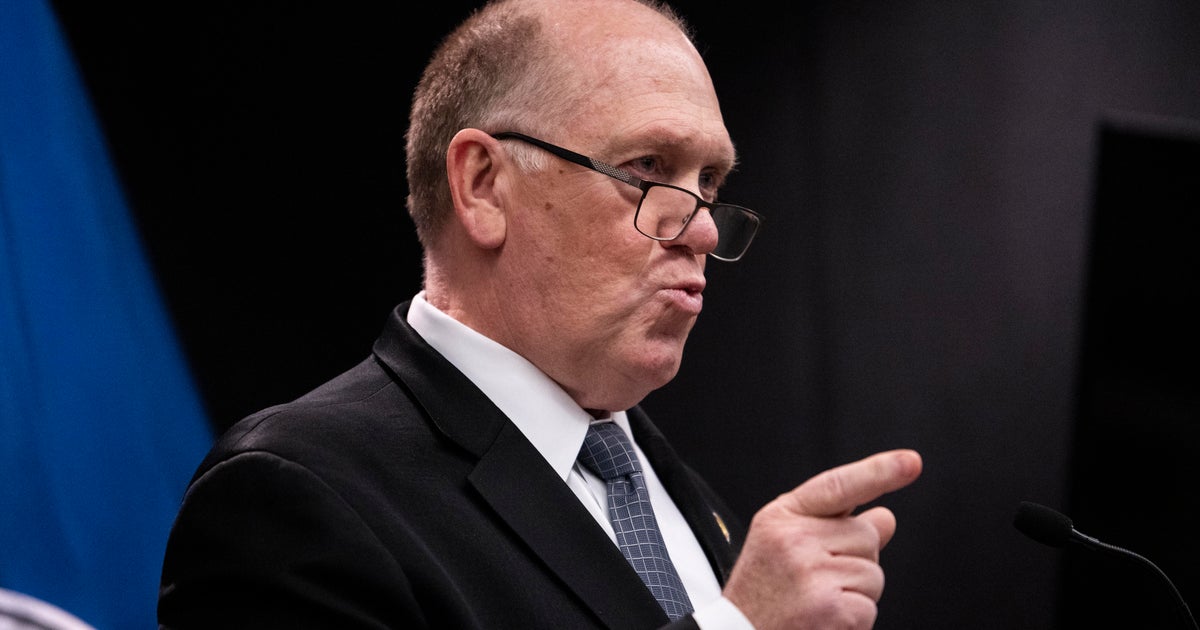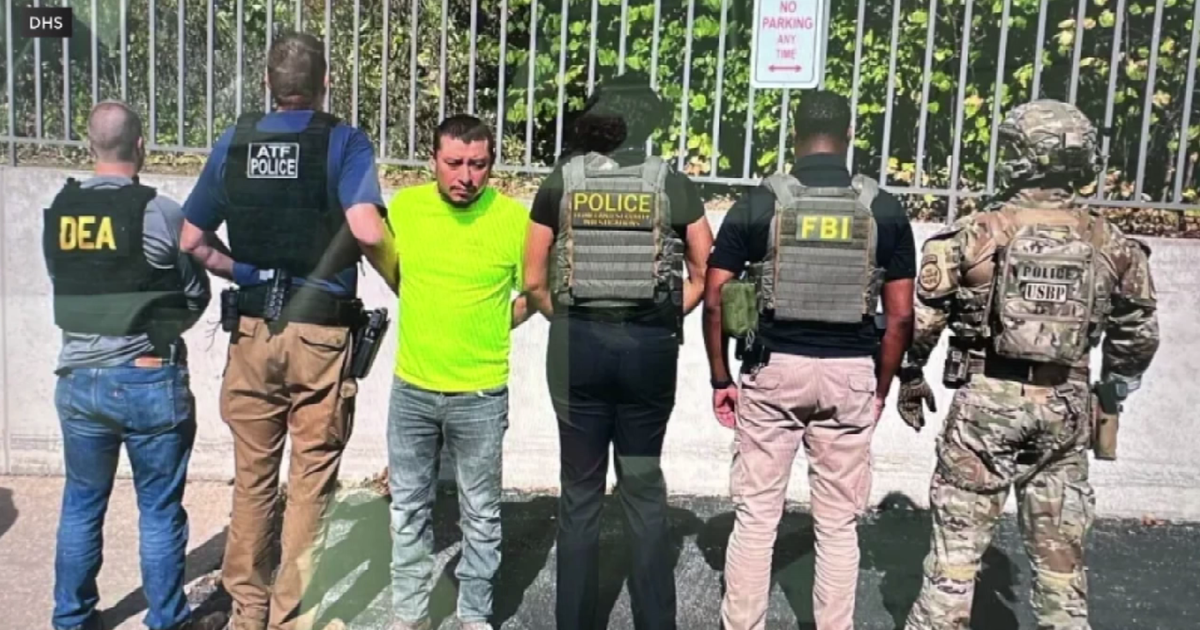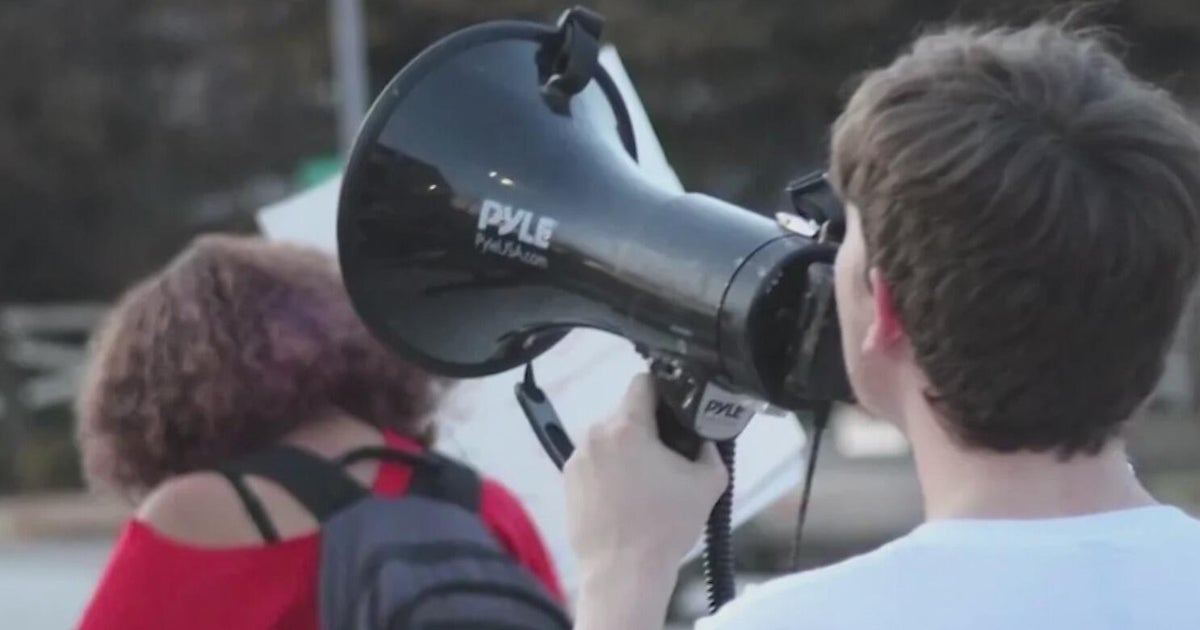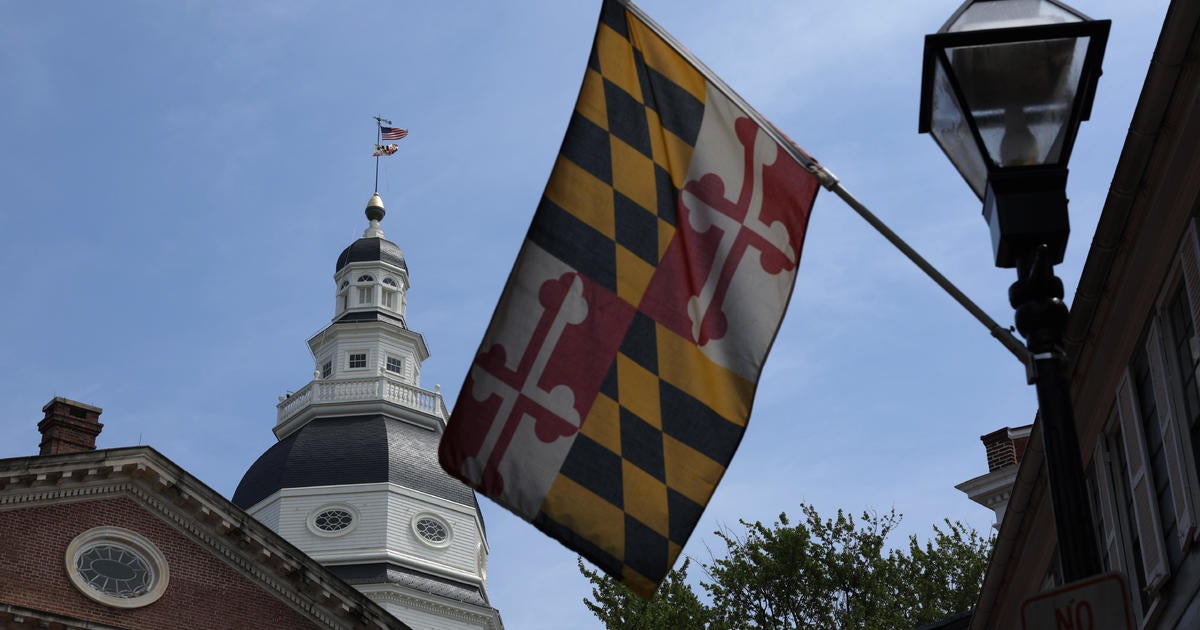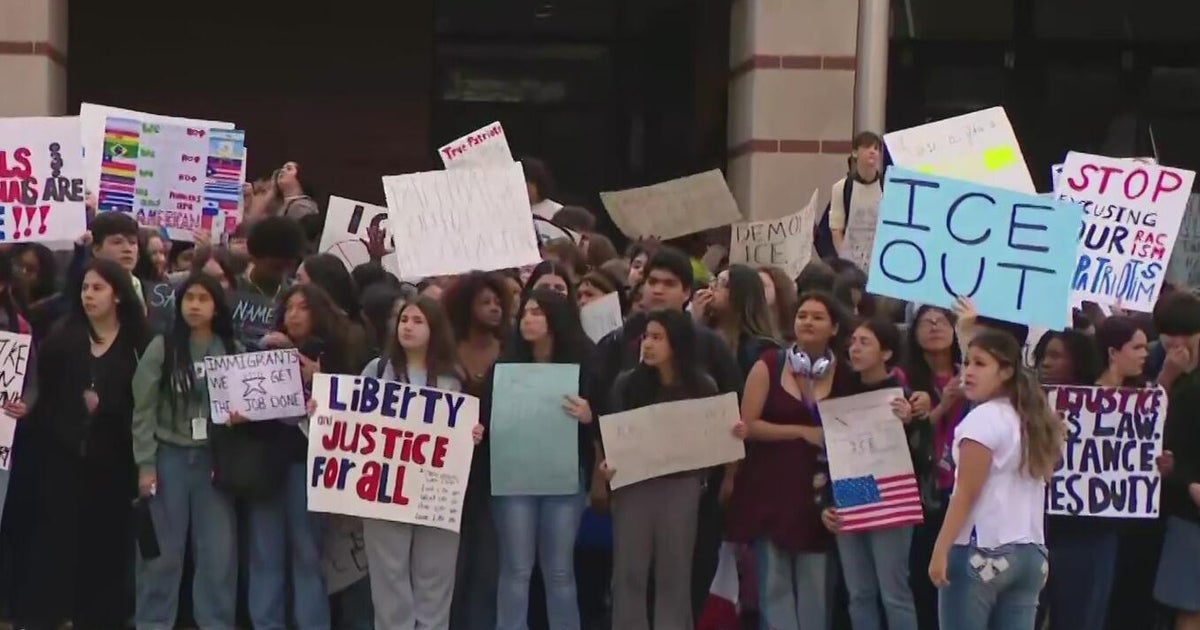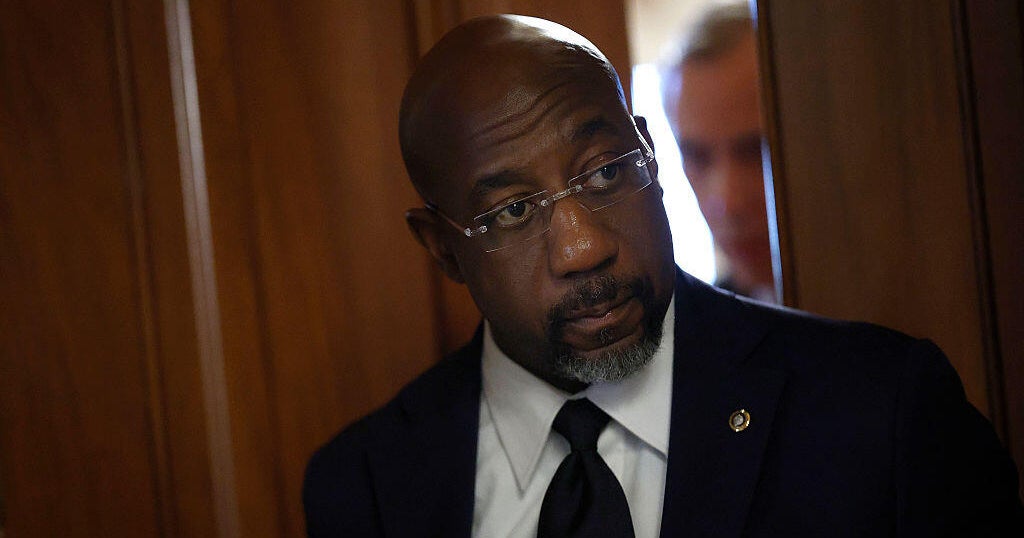Governor Perry Testifies On Child Immigration Crisis
MCALLEN, Texas (AP) - Gov. Rick Perry has testified at a U.S. House Homeland Security Committee hearing in South Texas that in addition to the humanitarian crisis created by a flood of unaccompanied child immigrants, there is a crisis involving border security.
More than 52,000 unaccompanied children have been apprehended since October after entering the United States illegally. Three-fourths of them are from Honduras, Guatemala and El Salvador and say they're fleeing pervasive gang violence and crushing poverty.
Perry on Thursday in McAllen criticized President Barack Obama's immigration policies that he says contributed to the problem. He says anything but deporting the children quickly will only encourage more to undertake the dangerous journey.
Perry has authorized $1.3 million per week in additional funding for the Texas Department of Public Safety to bolster border security.
Perry's full remarks as prepared for delivery are as follows:
"Good afternoon. I'd like to open my remarks by thanking and commending the members of this committee who made the trip down here. Chairman McCaul is demonstrating true leadership in elevating the visibility of what's happening along the border.
I would also like to recognize Chairwoman Granger, who is leading the Speaker's Working Group on the Humanitarian Crisis at the Southern Border, and other members of Congress who are here today in response to these ongoing crises.
And make no mistake, there is more than one crisis happening along the U.S. border.
The first is a humanitarian crisis, suffered by a growing number of individuals crossing our border illegally … many of them just children.
Last week, I witnessed the difficult conditions these children are being housed in while they await action by Washington, whether it's the right decision to immediately deport them, or the shortsighted and tragic decision to essentially turn them loose in the United States.
Some might think allowing them to stay is a more humane option, I assure you, it is not.
Nobody is doing any of these children the slightest favor by delaying a rapid return to their countries of origin, which in many cases is not Mexico.
Allowing them to remain here will only encourage the next group of individuals to undertake the same life-threatening journey.
Those who have come must be sent back to demonstrate, in no uncertain terms, that risking their lives to cross Mexico and enter our country simply isn't worth it.
Even those who have survived the treacherous journey are still at risk.
We've already had one confirmed case of H1N1 in Texas, and have been informed by our federal partners of two additional cases of Type A influenza that are likely to be H1N1, in addition to reports of other illnesses at other detention facilities.
The second crisis is a crisis of national security.
The rapid influx of illegal immigrants has strained border resources that were already insufficient to the task at hand. Officials who should be guarding the border are dealing with the overflow instead of fulfilling their primary tasks.
As a result, the border between the U.S. and Mexico is less secure today than at any time in the recent past, which is why we ordered the new surge.
We know that drug cartels and transnational gangs are already seeking to take advantage of the situation, attempting to circumvent security and spread pain and suffering on both sides of the border through their criminal activities.
We're also in danger at the hands of those who might be slipping through from countries with known terrorist ties. With a range of potential threats facing us from abroad, this is not the time to turn our attention elsewhere.
That's why Texas has taken steps to supplement its law enforcement operations along the border.
Currently, we're directing $1.3 million in additional funding per week to increase our law-enforcement efforts through at least the end of the calendar year. This is in addition to the more than $500 million we've committed to border security since 2005.
Our current operations include increased DPS aircraft patrols, maritime operations, and the utilization of Ranger Recon teams, who are able to quickly respond to remote areas where suspected activity is taking place.
I welcome the funding President Obama has publicly announced, but also ask the federal government for the following:
First, increase the Texas National Guard units involved in border security operations…That includes keeping the fleet of UH-72 Lakota aircraft in Texas to continue its vital missions.
Second, if the U.S. Border Patrol is going to release illegal immigrants into our communities to await a court date, every one should be medically screened to ensure their health and the health of our citizens.
Third, Texas should be reimbursed for the $500 million we've spent securing the border over the past decade. We've been fulfilling a federal responsibility, and the hardworking people of Texas shouldn't have to shoulder that cost on their own.
And finally, secure this border once and for all. Invest sufficient resources to put an adequate number of Border Patrol agents on the ground permanently, and utilize existing technology, including drones, to help plug the gaps in security operations currently being filled by Texans.
Thank you again for the opportunity to appear before this committee. I am happy to answer any questions you may have."
After the testimony, White House press secretary Josh Earnest responded to Perry's criticism saying, "It's hard to take seriously Governor Perry's concerns" and suggested that Perry support bipartisan immigration reform.
(© Copyright 2014 The Associated Press. All Rights Reserved. This material may not be published, broadcast, rewritten or redistributed.)
Latest News:
Top Trending:
- PHOTOS: Your Pet Pictures
